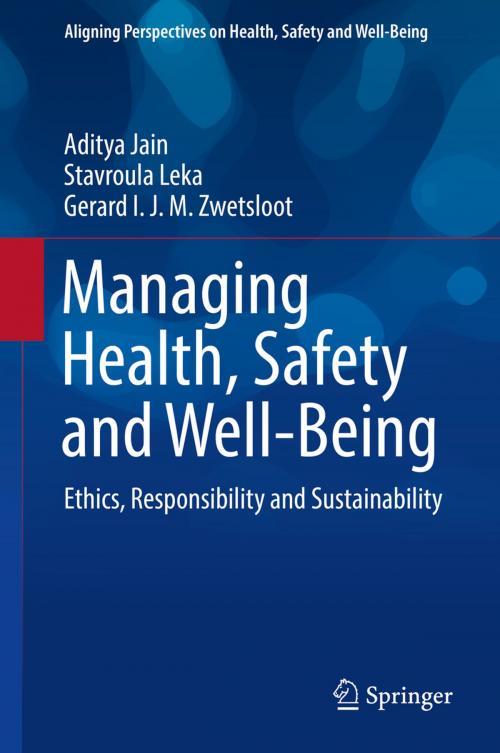Managing Health, Safety and Well-Being
Ethics, Responsibility and Sustainability
Nonfiction, Health & Well Being, Medical, Specialties, Occupational & Industrial Medicine, Psychology, Occupational & Industrial Psychology| Author: | Aditya Jain, Stavroula Leka, Gerard I.J.M. Zwetsloot | ISBN: | 9789402412611 |
| Publisher: | Springer Netherlands | Publication: | April 11, 2018 |
| Imprint: | Springer | Language: | English |
| Author: | Aditya Jain, Stavroula Leka, Gerard I.J.M. Zwetsloot |
| ISBN: | 9789402412611 |
| Publisher: | Springer Netherlands |
| Publication: | April 11, 2018 |
| Imprint: | Springer |
| Language: | English |
To achieve sustainable progress in workplace and societal functioning and development, it is essential to align perspectives for the management of health, safety and well-being. Employers are responsible for providing every individual with a working environment that is safe and does not harm their physical or mental health. However, the current state of the art indicates that approaches used to promote health, safety and well-being have not had the anticipated results. At the level of the enterprise it is widely understood and accepted by all stakeholders that employers share the responsibility of promoting and managing the health of their workers. Evidence indicates that most employers put in place procedures and measures to manage workers’ health and create healthy workplaces to meet legal requirements, as a response to requests by employees, as a need to improve company image/reputation, and to improve productivity. This highlights that in addition to legal requirements, the key drivers for companies also include the ethical and business case. While much has been written about role of legislation and the business case for promoting health, safety and well-being, not much is known about the ‘ethical case’ for promoting employment and working conditions. In this context, this book examines the potential of the link between responsible and sustainable workplace practices, human rights and worker health, safety and well-being and explores how complementary approaches can be used to promote employment and working conditions and sustainability at the organizational level. It offers a framework for aligning different approaches and perspectives to the promotion of workers’ health, safety and well-being and provides recommendations for introducing such an approach at the enterprise level.
To achieve sustainable progress in workplace and societal functioning and development, it is essential to align perspectives for the management of health, safety and well-being. Employers are responsible for providing every individual with a working environment that is safe and does not harm their physical or mental health. However, the current state of the art indicates that approaches used to promote health, safety and well-being have not had the anticipated results. At the level of the enterprise it is widely understood and accepted by all stakeholders that employers share the responsibility of promoting and managing the health of their workers. Evidence indicates that most employers put in place procedures and measures to manage workers’ health and create healthy workplaces to meet legal requirements, as a response to requests by employees, as a need to improve company image/reputation, and to improve productivity. This highlights that in addition to legal requirements, the key drivers for companies also include the ethical and business case. While much has been written about role of legislation and the business case for promoting health, safety and well-being, not much is known about the ‘ethical case’ for promoting employment and working conditions. In this context, this book examines the potential of the link between responsible and sustainable workplace practices, human rights and worker health, safety and well-being and explores how complementary approaches can be used to promote employment and working conditions and sustainability at the organizational level. It offers a framework for aligning different approaches and perspectives to the promotion of workers’ health, safety and well-being and provides recommendations for introducing such an approach at the enterprise level.






![Cover of the book The Dogmatic Principles of Soviet Philosophy [as of 1958] by Aditya Jain, Stavroula Leka, Gerard I.J.M. Zwetsloot](https://www.kuoky.com/images/2012/december/300x300/9789401036269-dEmL_300x.jpg)








